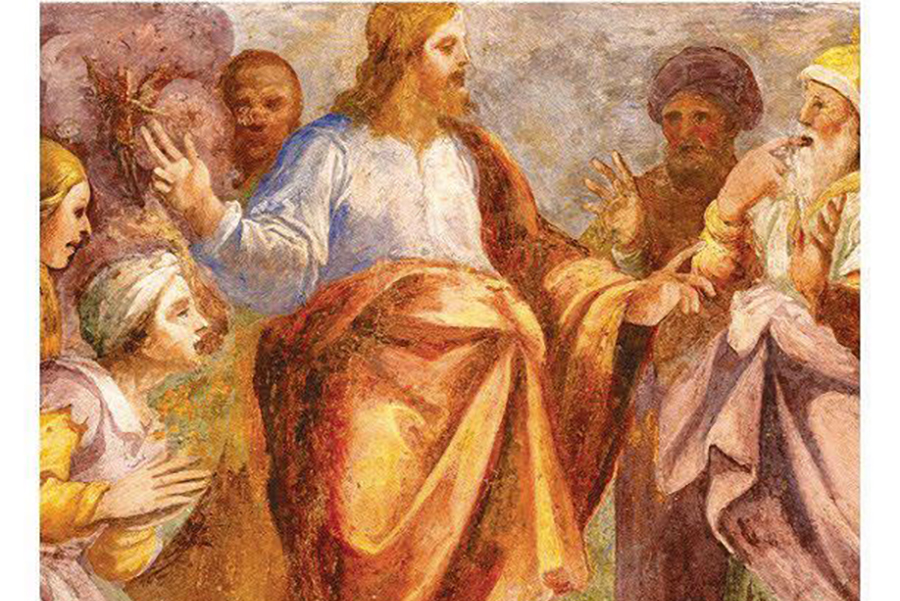
The Divine Promise
by Dcn Bob Evans | 07/24/2025 | Pastor's LetterAs we continue reading Luke's account of Jesus' last journey to Jerusalem, Luke tells us that Jesus and his disciples stopped to visit Lazarus, Martha and Mary in the village of Bethany. Bethany was on the eastern slope of the Mount of Olives. The name Bethany means "house of the afflicted." The village was a center for accommodating the sick and the destitute that came as pilgrims to Jerusalem, for Passover.' On this occasion, they remained in Bethany until it was time to head on to Jerusalem for Hanukkah, the Feast of Dedication.
The evangelists were telling their listeners that, if Lazarus, Martha and Mary accommodated, at their "house," Jesus and His disciples for a period of some weeks, their "house" must have been much larger than typical first-century houses. They likely had several buildings in which they operated in Bethany, the "house of the affiicted," what we would call today, an assisted living facility. This might account for why Jesus had such a deep affection for Lazarus and his sisters.
Luke tells us that, at some point, one of His disciples asked, "Lord, teach us to pray just as John taught his disciples." At times, they had observed Jesus praying alone, although praying in solitude was most uncommon for Jews. So, Jesus shared with them what has come to be known as the Our Father. In those days, Jews recited Scripture passages as prayer. But this prayer was profoundly different, this prayer speaks directly to One who delights in responding to his children's needs. This must have startled many of Luke's first listeners, who were predominantly Gentile converts. They came from an experience of prayer being a matter of bargaining with the gods. But, in this prayer, there's no bargaining. Instead, this prayer begins with praising God in His glory and then follows a simple expression of a present need, and it closes with a request for forgiveness.
Jesus went on to share a parable with them. Parables were Jesus' way of conveying a spiritual truth in story form. In the story, a traveler/friend came at midnight. Since Jews did not normally travel at night, midnight was a most unreasonable time; and this signaled a very urgent need. In the Middle East no one knocked on a closed door unless there was great urgency. These two details tell us that the one at the door expressed a most urgent need not a favor request.
The one knocking at the door had a cultural obligation to provide for a traveler. But the man of the house had no such cultural obligation. He replied, "Do not bother me ... we are in bed." Whatever response he may offer to his neighbor must arise from f riendship, not obligation. And it didn't appear they had much of a friendship - a very telling story of a common human response to an urgent need.
Then, Jesus called for them to set aside their expectations of how humans respond, for God does not respond that way. Jesus declared, "For everyone who asks, receives; and the one who seeks, finds; and to the one who knocks, the door will be opened." This is a divine promise. If we don't seem to receive what we asked for in prayer, it's not because God grudgingly refuses to respond; it's because in His love and wisdom He offers sometlling even better. Jesus assured His friends that day, and us, that with our Heavenly Father, there are no unanswered prayers.
Dcn Bob Evans
1.J. H. Charlesworth (ed.), Jesus and Archaeology, (Grand Rapids, MI: Eerdmans Pub!, 2006).